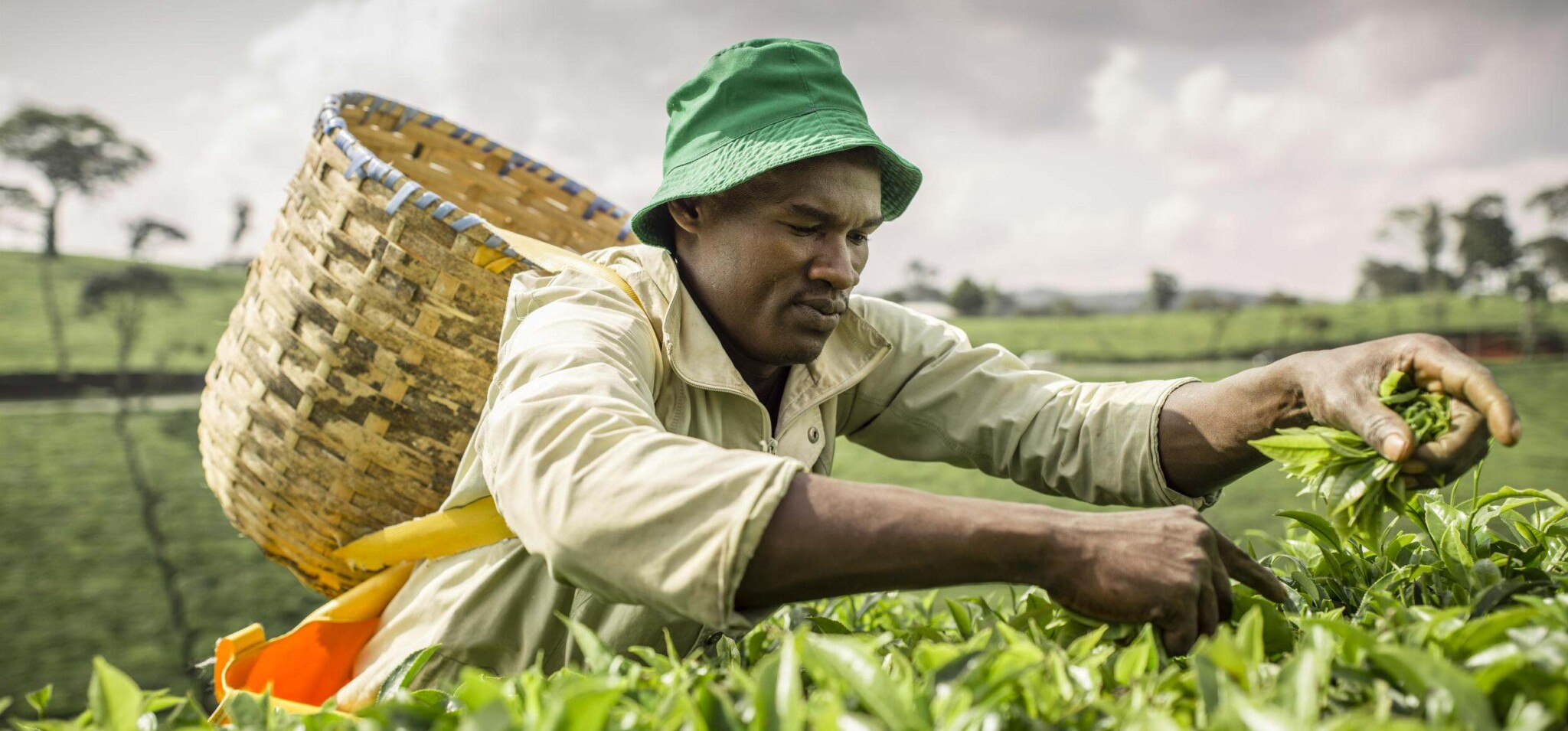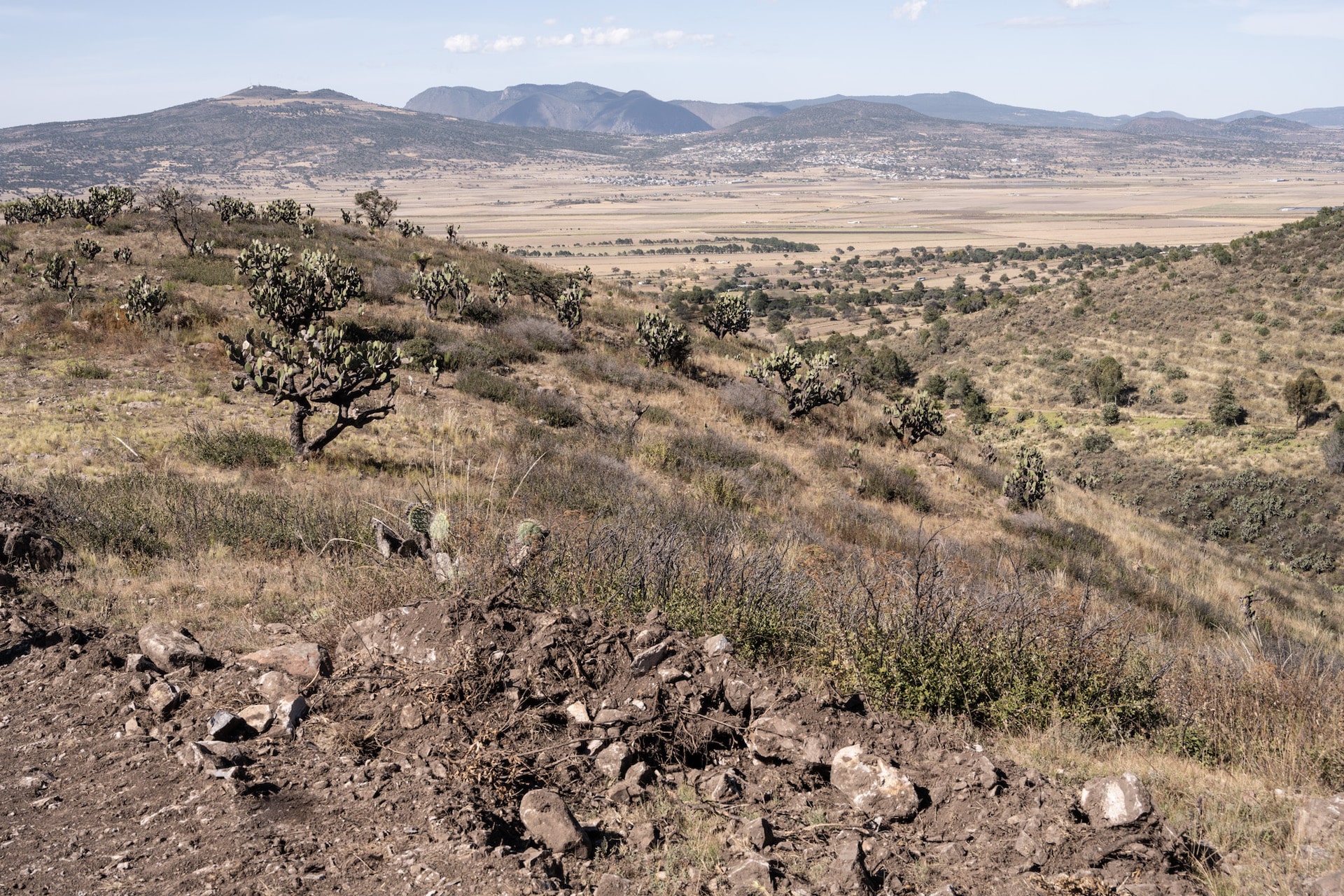
A young man picking tea leaves on a tea plantation in the Upper Tana Watershed, Kenya. Copyright: ©Nick Hall
FEATURED NEWS
3 reasons for companies to embrace forest carbon markets in 2024 [Commentary]
World Economic Forum, Fred Krupp, Jennifer Morris and M. Sanjayan, 10 June
World Economy Forum publishes an Agenda article from leaders of three of the world’s largest conservation NGOs calling for businesses to invest in high-integrity voluntary carbon markets. The article specifically explains why high-quality forest carbon credits an irreplaceable tool for investing in the protection and restoration of forests. The Wall Street Journal carries an interview with the head of Salesforce’s nature-positive strategy on how nature-based solutions can play a key role to help companies develop and implement broader nature-positive strategies that can help address environmental challenges, including the climate crisis. Reuters reports that a group of 10 West African countries has weighed into a debate over whether companies around the world should be allowed to use carbon offsets to cut emissions, arguing they are critical to attracting financing for climate and conservation efforts. Quantum Commodity Intelligence reports that the Architecture for REDD+.
Transactions, secretariat alongside various organizations representing Indigenous peoples and local communities, launched a new advisory group to support the review process of the The REDD+ Environmental Excellence Standard (TREES) throughout 2024 and 2025. Mongabay reports Verra, the largest registry of the voluntary carbon market, suspended projects it had certified after being targeted by Brazilian Federal Police raids to crackdown on the projects’ owners suspected ties to a timber laundering scam.
World’s top banks ‘greenwashing their role in destruction of the Amazon’
The Guardian, Jonathan Watts, 11 June
The Guardian covers a new report from Stand.earth and the Coordinating Body of Indigenous Organizations of the Amazon Basin (COICA) finding that five of the world’s biggest banks environmental and social guidelines fail to prevent further investments in oil and gas development for 70 percent of the Amazon rainforest. The institutions are alleged to have provided billions of dollars of finance to oil and gas companies involved in projects that are impacting the Amazon, destabilizing the climate or impinging on the land and livelihoods of Indigenous peoples.
Keeping Sanctioned Russian Timber Out of the EU Is Tricky. This Nonprofit Has a Solution.
The Wall Street Journal, Dylan Tokar, 10 June
The Wall Street Journal reports non-profit World Forest ID is pioneering a new method to keep sanctioned Russian timber out of Europe by mapping the unique chemical fingerprints of trees, a process that could be used to vet corporate supply chains for other banned commodities. The team analyzed thousands of wood samples of trees, then layered in advanced statistical models and artificial intelligence. The result was a database allowing customs officials and corporate auditors to verify the origin of timber with a simple, lab-based test. Although the method is still being fully developed, IKEA is utilizing a growing database to vet suppliers and Belgian authorities have used it to seize more than 260 tons of illegally shipped Russian timber.
Plans for an Ailing Forest Include Logging. Environmentalists Object
The New York Times, Anna Kramer, 6 June
The New York Times covers the ongoing debate between foresters and environmentalists on how to manage dying trees across a significant region of the US. Experts blame a combination of factors, including insect attacks, drought and increased temperatures caused by climate change. Decades of fire suppression have exacerbated problems by disrupting the natural balance of ecosystems. Foresters say that, in many cases, they need to cut down Douglas firs, whether dead or alive, in order to minimize wildfire risk, promote forest health and help ecosystems adapt to the shifting climate. Their plans include selling some salvageable timber. But those plans have touched a raw nerve with some environmentalists, who distrust government agencies and accuse them of favoring logging over conservation.
Emissions from loss of plant diversity spells massive climate trouble: Study
Mongabay, Liz Kimbrough, 5 June
Mongabay covers a new study that suggests that the loss of plant species due to climate change and human activities could release vast amounts of stored carbon into the atmosphere, potentially accelerating climate change. The researchers estimate that losing plant diversity worldwide could release up to 146 billion metric tons of carbon from vegetation, equivalent to more than 12 years of global car emissions. Biodiversity hotspots like the Amazon, Central Africa and Southeast Asia could be hit hardest by both species loss and carbon storage declines, while even moderate diversity losses over large areas could significantly impact emissions.
SPOTLIGHT – Nature At Bonn

The Nature4Climate team and partners are on the ground at the UNFCCC SB60 negotiations occurring in Bonn. Read about the latest on negotiations for key topics related to nature including Article 6 rules, National Adaptation Plans (NAP), advancements in Nationally Determined Contributions (NDC) plans, climate finance negotiations, delivery of Global Stocktake outcomes and more!
Get the latest from Bonn👇
SPOTLIGHT – Nature is Everyone’s Business
In order to support companies in identifying and building support for the business cases for NbS, WBCSD has released two new tools: the NbS Blueprint and the NbS Map.
The NbS Blueprint is a fundamental guidance on how companies can build business cases for using Nature-based Solutions (NbS) to address their challenges and opportunities – while also delivering positive impact on climate, nature and equity.
The NbS Map is a tool designed to help companies identify the types of Nature-based Solutions (NbS) that best address their priority challenges and opportunities, enabling them to build stronger business cases for using NbS.
FOR YOUR INFORMATION
Nature4Climate announces it will host the the Nature Positive Hub at London Climate Action Week on 26 June. The Hub will host events focused on discussing how deforestation-free finance, ‘nature tech’, carbon markets and investment in nature-based solutions need to come together to reconfigure the private sector’s relationship with our natural world.
US Nature4Climate shares resources for tree maintenance as a key to urban forestry.
Conservation International releases a statement in support of high quality, high integrity forest carbon credits.
UNEP shares a new report supporting the case for green investment, demonstrating how a global push to meet nature-related sustainability goals over the next six years could deliver more than 20 times the return on investment.
Oxford Net Zero publishes a report identifying the latest areas of convergence, divergence and gaps across initiatives advising on corporate climate action.
Bertha Foundation launches the sixth Bertha challenge, which offers activists and investigative journalists the opportunity to spend a year working on one pressing social justice challenge. This year’s focus is on farming and the climate crisis.
UNEP shares a report finding that commitments to reduce deforestation and financially support this transition from developed countries are insufficient to halt deforestation by 2030. The report provides recommendations to strengthen and enhance forest-based targets in NDCs.
MapBiomas Alberta releases its fifth report on deforestation for all Brazilian biomes, with analyses for different territories and land tenure categories.
Transition Finance shares insights on how the carbon market can rethink additionality to support the green transition, and how doing so could unlock more finance for the systemic changes that are needed.
CASE STUDY
N4C is compiling an index of NBS case studies, together with an interactive map, to highlight action on the ground. Each week, we will be choosing a case study to present, to help give concrete examples of work being done to bring NBS theory into practic

Recharging the Apan Aquifer in Hidalgo, Mexico
WHERE: HIDALGO, MEXICO
TYPE OF NCS SOLUTION: RESTORE
The APAN 1320 Acquifer in the state of Hidalgo has faced significant ecological degradation. This project uses nature-based solutions to restore the ecosystem and promote aquifer recharge. Current project activities include restoring 235 hectares of forest cover; mitigating sheet erosion; and implementing silvopastoral systems. Through regenerative agricultural practices, the project also works to improve the soil’s health, functionality, and conditions, increasing its capacity to host biodiversity and capture and store carbon.
NUMBER OF THE WEEK – 215 MtCO2e/yr
The annual carbon dioxide emissions that could be sequestered by Indonesia if it meets its potential for peatland restoration by 2050. See more details on the potential for natural climate solutions in N4C’s naturebase.
GOOD NEWS
How Guanacaste’s Mangrove Project Benefits Environment and Locals
In Guanacaste, Costa Rica, a mangrove restoration project is positively impacting both the environment and the economy of the area. The mangrove restoration and conservation project in the Cipancí National Wildlife Refuge, located in Guanacaste, is recovering the land through the opening of canals and the demolition of walls, which facilitates the entry of tides and the natural growth of new mangrove seedlings. The project has three major components: technical and research work for mangrove restoration, environmental education for key audiences such as schools and community associations, and socio-economic development in the area.